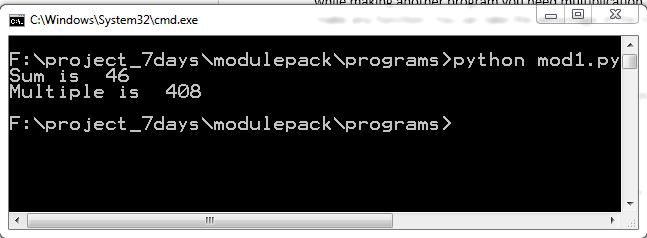In order to use the functions and variables of the module1.py program, we will use the import statement. The syntax of the import statement is shown here:
Import module1, module2, module
In this way, you can import multiple modules. Let's make another program mod1.py, which will import module1.py:
import module1 x = 12 y = 34 print "Sum is ", module1.sum1(x,y) print "Multiple is ", module1.mul1(x,y)
As you know, the module contains statements and definitions and these statements and definitions are executed for the first time when the interpreter encounters the module name in the import statement.
In preceding code, the module1 module gets executed when the interpreter encounters the module1 name in the import statement. In order to use the module variables and functions, use the module_name.variable and module_name.function() notations. In the preceding code, we want to use the sum1() function of module1, that's why we use module1.mul1().
Let's see the output:

Output...



